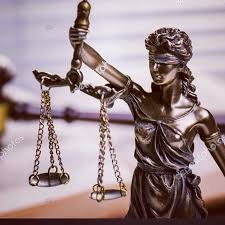Lawyer
Liability for looting and other crimes in time of war
War is always accompanied by chaos, destruction and significant social upheaval. In the context of armed conflict, the risk of committing various crimes increases, among which looting and other war crimes are particularly prominent. Ensuring law and order and accountability for these crimes are important aspects of maintaining a civilized society even in the most difficult times. In this article, we will examine the legal aspects of liability for looting and other crimes in time of war, as well as international and national mechanisms for their prevention and prosecution.
Legal basis of liability for war crimes
International humanitarian law
International humanitarian law (IHL) is the basis of legal regulation of armed conflicts and contains rules aimed at protecting civilians and limiting the methods and means of warfare. The main documents regulating war crimes include:
Geneva Conventions (1949 ) and their additional protocols - these documents establish rules of engagement and protection of war victims, prohibit looting, torture, murder and other cruel acts against civilians and prisoners of war.
TheHague Conventions (1899 and 1907 ) - these conventions define the laws and customs of war on land, including the prohibition of looting and other illegal acts during armed conflicts.
Rome Statute of the International Criminal Court (1998 ) - this document creates the International Criminal Court (ICC) and defines war crimes, crimes against humanity and genocide that are subject to the jurisdiction of the ICC.
National legislation
Each state has its own legislation that provides for liability for crimes committed during war. This may include criminal codes, martial law laws, and other regulations governing law and order in armed conflict. National legislation is often harmonized with international norms to ensure effective prosecution of war crimes.
Looting in time of war
Definition of looting
Looting is one of the most common crimes in time of war and includes the misappropriation of property of civilians or military personnel. This can include looting of homes, shops, warehouses, and other objects left unprotected by hostilities. Looting is a serious violation of international humanitarian law and is considered a war crime.
Liability for looting
Looting is subject to both international and national criminal liability. According to international conventions, perpetrators of looting may be prosecuted by the International Criminal Court or national courts. National laws typically provide for severe penalties for looting, including long prison sentences.
Preventing looting
Preventing looting during war involves a number of measures, including
Strengthening law and order: Ensuring public order and protection of civilian property by law enforcement agencies and the military.
Public awareness: Conducting information campaigns among the military and civilians about the inadmissibility of looting and the responsibility for it.
Cooperation with international organizations: Involve international organizations, such as the UN and the International Committee of the Red Cross, to monitor the situation and help prevent looting.
Other crimes during the war
War crimes.
War crimes include violations of the laws and customs of war, including the killing of civilians, torture, hostage-taking, destruction of civilian objects, and other atrocities. These crimes are subject to international and national criminal liability.
Crimes against humanity
Crimes against humanity include widespread or systematic attacks against the civilian population, including killings, deportations, torture, rape and other inhumane acts. These crimes are also subject to the jurisdiction of the International Criminal Court and national courts.
Genocide
Genocide is the most serious crime and includes actions aimed at the destruction of a national, ethnic, racial or religious group as such. Liability for genocide is provided for by international conventions and national legislation.
Mechanisms for bringing to justice
International Criminal Court
The International Criminal Court (ICC) is the main international body that considers cases of war crimes, crimes against humanity and genocide. The ICC can prosecute the perpetrators of these crimes, regardless of their nationality or the place where the crime was committed. Investigations are conducted on the basis of evidence collected by international and national authorities.
National courts
Domestic courts play an important role in ensuring accountability for crimes committed during the war. They have jurisdiction to try cases of war crimes, looting and other offenses committed on the territory of a state or by citizens of that state. National legislation provides for procedures for the investigation, trial and punishment of these crimes.
Special tribunals
Special tribunals are sometimes established to deal with specific conflicts and crimes. For example, the International Criminal Tribunal for the Former Yugoslavia (ICTY) and the International Criminal Tribunal for Rwanda (ICTR) were established to investigate and prosecute crimes committed during the conflicts in those regions.
Challenges and prospects
Evidence base
One of the main challenges in prosecuting war crimes is the collection of evidence. War conditions often make it difficult to document crimes and preserve evidence and testimony. Overcoming this challenge requires close cooperation between international and national authorities, as well as the use of the latest technology to collect and preserve evidence.
In any legal situation, it is important to conduct a comprehensive legal analysis of the situation in order to obtain a clear understanding of its aspects and possible solutions; the legal conclusion on the situation should be based on a detailed study of the facts and application of the relevant legal provisions. To achieve the best results, it may be necessary to write a lawyer's request, writing a lawyer request will help to obtain the necessary information for further analysis.
Or, an analysis of the situation by a lawyer or attorney is a key step in formulating a legal strategy. Also, a legal analysis of the situation includes both a lawyer's opinion and an attorney's opinion, which provides a comprehensive approach to solving a legal problem. A written legal consultation or written legal advice helps the client to understand the legal aspects and possible consequences of various options.
In today's environment, legal advice online and legal consultation online are becoming especially relevant, as they provide access to legal assistance regardless of the client's location. And online consultation of a lawyer and written consultation of a lawyer allow you to quickly get the necessary information and support in legal matters.
Thus, a legal analysis of the situation by professional lawyers and attorneys is the key to a successful solution to any legal problem. A legal opinion and timely legal assistance help to protect the rights and interests of the client, ensuring effective resolution of complex legal issues. Contact the legal marketplace "CONSULTANT"! A lawyer is always there for you!




































